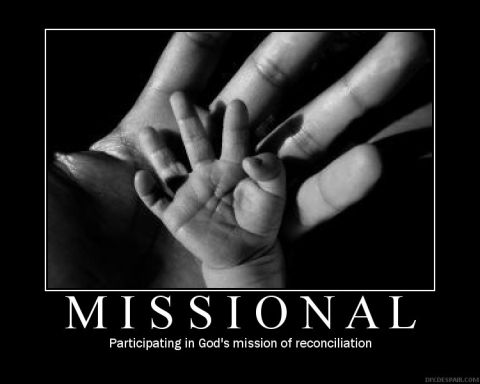It seems that the emerging church (hate to use that singular, but it’s convenient) scratches a couple of different itches amongst evangelicals. On the one hand, it is hailed as a fresh expression of evangelicalism’s ever-outgoing nature. It is contextualization for the sake of conversion. On the other hand, it represents the (further) watering down of truth, the gospel and discipleship.
I’m less concerned about the other hand than some, and I’m actually very excited about particular expressions of the emerging conversation that I’ve experienced firsthand. But in any case, it’s important in the midst of talking about this new thing that certain words and values can mean decidedly different things to different people. A conversation is only as good as its contextualization, which is another way of saying that fans and foes of the emerging church movement need to move beyond knee-jerking at the first sign of a friendly or foul word and do the hard work of hearing the fears and hopes that lie behind it.
To illustrate how easy it is to hear the same word differently, look at this pair of posters.


The first (hilarious) image comes from a series of parody posters by a guy who calls these ‘Motivational Posters’ for what he describes as the ‘Emerging Chaos’. Here you see his concern – that the missional impulse of the emerging churches will descend to (or maybe has always been) an immersion in the worst of American culture. But rather than a baptism, this immersion will end up drowning the gospel and selling the church out. This is a real danger as people seek to root the gospel in culture, and at times some emerging churches seem to put more thought into assessing the culture than unfolding the gospel. Funny thing is, even poorly handled, the gospel has this way of making itself right at home in a culture. In short, there is such a thing as too much technique.
The second image is part of a series of posters trying to set the record straight. To be ‘missional’, it argues, is to participate in God’s mission of reconciling the world to himself. A few decades ago (particularly in the work of David Bosch), missiologists began speaking of mission primarily in terms of the missio Dei, the mission of God. The task of mission, then, is one in which we seek to join God in the work he is doing around the world, rather than one in which we go out and do something for God. (Those of you who remember Henry Blackaby’s fine Bible study, Experiencing God, will hear resonances.) The singular (mission vs. missions) is important in its reminder that this is first about God’s one Mission of reconciliation and only later about the various missions which we undertake within that.
At their best, emerging churches seek to remember and remind us that the Word became flesh and that our communities which form around the Word need to again flesh him out in culturally faithful ways.